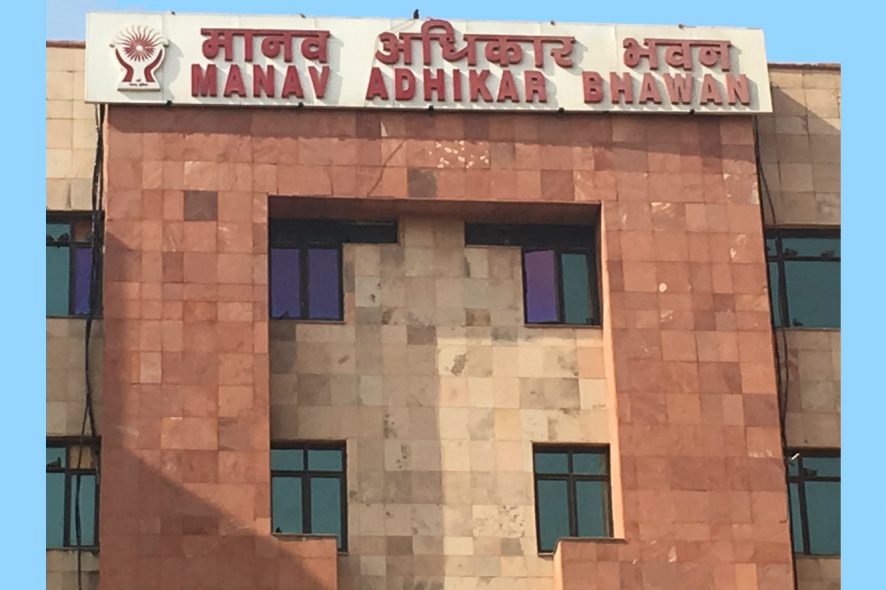National Human Rights Commission: The National Human Rights Commission has taken suo motu cognizance of a media report about the plight of manual scavengers including 30 women in Meerut district of Uttar Pradesh and over all 12,737 identified in 13 States and Union Territories till January, 2017. Considering it as the worst example of violation of right to life, dignity, equality and health care, the Commission has issued notices, returnable within six weeks, to the Secretary, Ministry of Social Justice and Empowerment, Government of India New Delhi and the Chief Secretary, Government of Uttar Pradesh calling for a detailed report in the matter along with the steps taken/proposed to be taken to deal with the situation along with measure for the relief and rehabilitation of the victims.
The Commission has observed that in a civilized society, where the government has passed laws like Prohibition of Employment as Manual Scavengers and their Rehabilitation Act, Untouchability Offence Act and the Scheduled Caste and Scheduled Caste (PoA) Act, the women of a vulnerable Dalit community are still not able to get rid of the slur of carrying human excreta on their heads. The district Meerut is almost a part of the National Capital Region. If this is the picture of an area not very far from the Nation capital, one can imagine the scenario in the other parts of the country.
Narrating the plight of the 30 women manual scavengers in Radhna Inayatpur village of Mawana in the district, of whom many have grown old doing this work, the media report, carried on the 15th June, 2017, says that they are paid as little as between ten and fifty rupees every month, per household to clean the dry latrines and sometimes, as a bonus, they are given stale leftover food and worn-out clothes.
Due to exposure to filth, most of them have multiple health issues such as vomiting, constant headache, skin and respiratory diseases, trachoma, anemia, carbon monoxide poisoning and diarrhea including infections like Leptospirosis, Hepatitis and Helicobacter. To avoid the stench, they often smoke beedis. One of the women has contracted Tuberculosis forcing her to stop working as a manual scavenger. The worst happens during rainy season, when the excreta slip from the basket on their hair and shoulders.
The news story further says that the Union Justice and Empowerment Minister, on March 16, 2017, had admitted, in response to a Parliament Question that 13 States and Union Territories reported identification of 12,737 manual scavengers till January, 2017. The central government has announced the Swach Bharat Mission to construct over 12 crore toilets in rural parts of the country. However, the project hardly gives a thought to the workers who will be required to clean these toilets. There is no budgetary allocation under the scheme to construct sewer lines to deal with the excreta.
Reportedly, the National Safai Karamcharis Finance and Development Corporation (NSKFDC) constituted by the government, grants Rs. 40,000 to the liberated manual scavengers, which they can withdraw in monthly installments of not more than Rs. 7000. The process of rehabilitation of women manual scavengers is also gendered because all the rehabilitation schemes are aimed at male breadwinners.
According to the media report the National Commission for Scheduled Caste has observed that the expenditure on the loans for the rehabilitation of manual scavengers in the last three years is negligible. The identification of manual scavengers is done by the village pradhans. Many times, many leaders name their family members to get the loan. Sometimes they just fail to identify all the manual scavengers in their area. Reportedly, the process of getting loans has also become difficult as the banks do not trust the community for loans.






